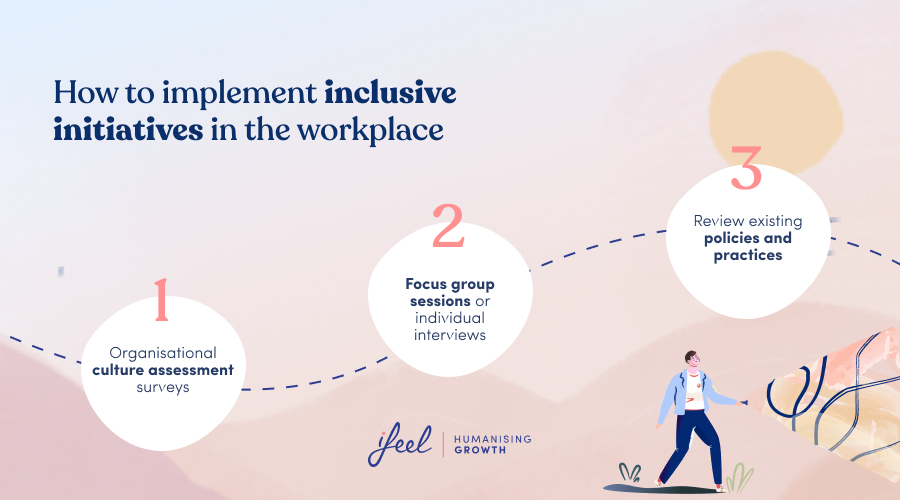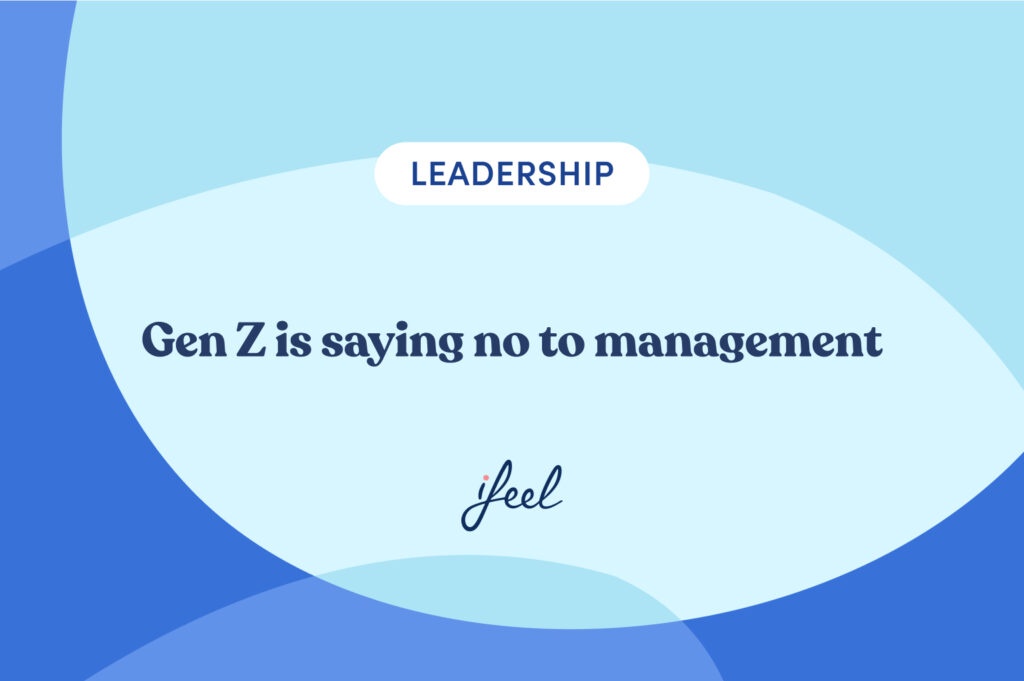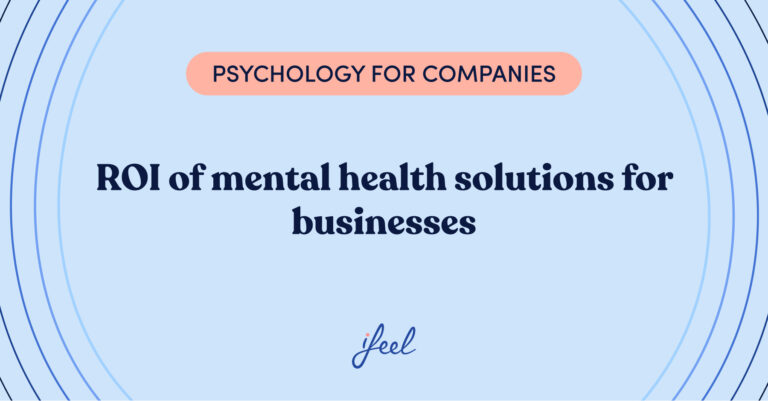In the contemporary workplace, a significant shift is occurring, a phenomenon where Gen Z is saying no to management. As we look towards 2025, Gen Z will make up over a third of the global population. Understanding their mindset is pivotal for leaders and HR managers, particularly in enterprises. This generation’s unique approach to work and authority, provides both challenges and valuable insights for organisational dynamics.
In this article, we discuss why Gen Z is saying no to management and how decision-makers can take proactive steps to adapt leadership strategies, embrace flexibility, and foster inclusive work environments to engage this generation effectively.
Understanding Gen Z: A new workforce paradigm
Gen Z, born between 1997 and 2012, is distinct in its approach to work compared to previous generations. They were raised amidst technological advancements, social media, and rapid globalisation. This upbringing has profoundly influenced their workplace expectations, leading many to question and often resist traditional management structures and practices.
Digital natives with high expectations: Gen Z is extremely tech-savvy, expecting seamless technology integration in their work environments. This digital proficiency means they prefer efficient, less hierarchical structures. This often results in instances where Gen Z is saying no to management when outdated practices are enforced, demanding instead fresh and innovative approaches.
Value-driven work ethos: A 2022 Deloitte survey highlighted that 75% of Gen Z prioritise work that aligns with their personal values. Unlike previous generations, they seek purpose over a paycheck, often pushing back against management that fails to deliver meaningful projects or demonstrate social impact.
Flexibility as a non-negotiable: Flexibility is crucial for Gen Z, who strongly prefer remote work and flexible hours. This expectation for adaptability can often be perceived as defiance, but it also presents opportunities for leaders to innovate and adapt.
Demand for transparency and authenticity: Gen Z values transparency and authenticity in leadership. They are quick to disengage if they perceive management as opaque or insincere. This need for openness frequently results in scenarios where Gen Z is saying no to management that doesn’t practice what it preaches, preferring environments where contributions are acknowledged and valued.
Continuous feedback culture: Unlike their predecessors, Gen Z thrives on constant feedback rather than annual reviews. This expectation can strain traditional management systems not equipped for continuous evaluation and improvement. Leaders must adapt to provide timely and constructive feedback that aligns with Gen Z’s expectations.
Challenges for management
As Gen Z is saying no to management, it creates several challenges for traditional leadership structures. Managing a generation prioritising flexibility, feedback, and purpose requires a fundamental shift in how organisations operate.
- Resistance to hierarchy: Gen Z’s preference for less hierarchical structures challenges traditional management styles, necessitating a shift towards more inclusive and participative management approaches.
- Demand for work-life balance: Gen Z often rejects rigid work schedules, pushing for more flexible working arrangements that challenge conventional office norms.
- Focus on diversity and inclusion: Gen Z expects a workplace that champions diversity and inclusion. This generational expectation challenges companies to implement and actively progress towards comprehensive DEIB (Diversity, Equity, Inclusion, and Belonging) initiatives.

Guide to embedding a DEIB strategy in your corporate culture
In navigating the challenges of a modern workforce where Gen Z is saying no to management, decision-makers must integrate comprehensive strategies that promote diversity, equity, inclusion, and belonging (DEIB).
A valuable resource in this journey is the “Guide to Embedding a DEIB Strategy in Your Corporate Culture”. This guide offers insightful strategies and practical steps for embedding DEIB into corporate culture, ensuring that your organisation not only meets but exceeds Gen Z’s expectations. By implementing these strategies, leaders can foster a more inclusive and equitable work environment that resonates with this generation’s values.
We highly encourage leaders and HR professionals to download this guide from ifeel’s resource page to start transforming their workplace culture today.
The Leadership Lens🔎
From a leadership perspective, the shift where Gen Z is saying no to management requires an adaptive and resilient approach. Leaders must evolve their management styles to remain relevant and supportive of this influential workforce.
Encouraging participative leadership: Leaders today need to embrace participative and democratic styles of leadership. This approach involves engaging employees in decision-making processes, which aligns with Gen Z’s preference for transparency and inclusivity. By involving team members in shaping their work environment, leaders can foster a sense of ownership and commitment among Gen Z employees.
Building a culture of trust and innovation: Establishing a culture that values trust and innovation is crucial. Leaders should encourage experimentation and provide platforms for Gen Z to express their creativity and innovative ideas. This not only satisfies their need for purpose-driven work but also promotes a dynamic and forward-thinking organisational culture.
Guidance for leaders: Embracing the Gen Z perspective
Leaders need to adapt their strategies to effectively manage and harness the potential of Gen Z. Understanding that Gen Z is saying no to management in traditional forms requires a shift in leadership style to meet the evolving needs of this generation.
Promote open communication: Create a culture of open dialogue where ideas are freely exchanged. This involves establishing platforms for feedback and discussion, aligning with Gen Z’s preference for transparency. Leaders should encourage all employees to voice their thoughts, contributing to a more inclusive and collaborative work environment.
Foster a flexible work environment: Embrace flexible work arrangements that accommodate Gen Z’s desire for work-life balance. This flexibility can increase job satisfaction and productivity, reducing instances where Gen Z is saying no to management. Implementing hybrid work models or flexible hours can meet these expectations.
Align work with purpose: Integrate corporate social responsibility into the business model to attract and retain Gen Z talent. By aligning organisational goals with broader societal values, leaders can more effectively engage this purpose-driven generation. This alignment not only improves employee morale but also enhances the company’s reputation.
Leverage technology: Utilise technology to streamline operations and communication. Gen Z’s digital fluency can be an asset if harnessed correctly, allowing for more agile and responsive management practices. Innovative digital tools can facilitate collaboration and efficiency, meeting Gen Z’s expectations for a modern workplace.
Benefits of adapting to Gen Z’s approach
| Benefit | Description |
|---|---|
| Enhanced innovation | Embracing tech-savvy Gen Z encourages innovation and creativity within the organisation. |
| Improved employee engagement | Tailoring practices to Gen Z’s values increases engagement and reduces turnover costs. |
| Strengthened employer brand | Adapting to Gen Z’s expectations enhances the company’s reputation as a desirable employer. |
| Increased team cohesion | Promoting flexible work environments improves team collaboration and communication. |
Key takeaways
The movement of Gen Z saying no to management is not just about defiance; it’s a call for modernisation and adaptation in workplace practices. Organisations that embrace these changes will find themselves not only surviving but thriving in a rapidly changing global market. Here are some key actions to consider:
- Encourage open dialogue: Establish regular forums for open discussions on workplace improvements.
- Embrace flexibility: Implement policies for remote work and flexible hours.
- Align with values: Ensure company missions resonate with broader social values.
- Leverage technology: Use digital tools to enhance communication and efficiency.

Mental health at work, one of the biggest challenges facing organisations today
At ifeel, we understand that adapting to the evolving needs of your workforce, especially when Gen Z is saying no to management, is crucial.
To help in this process, ifeel has developed an annual planner for enterprises, which offers a guide to strategies that will help you promote health and productivity throughout the year in your organisation. Download it for free!
In addition, our clinical team provides leading companies in their sector with a dynamic, scalable and fully personalised solution, powered by AI. We have a strategy and approach based on key data to help organisations with a global presence address one of the biggest business challenges of our time: mental health at work.
This solution offers employees a mental health care service structured at different levels depending on their needs at any given time. Discover our Resources section where you will find different materials, such as webinars, podcasts, guides for human resources on current topics and interviews with leaders of large organisations.
Data-driven methodology
Our mental health solution for enterprises employs evidence-based practices and innovative methods, backed by the latest research and a network of over 600 mental health professionals. Would you like to know more about our Clinical Research Department? Don’t forget to visit this section to stay informed about the latest studies and research in mental health in corporate environments.
We hope you found this article on how Gen Z is saying no to management interesting.
If you would like more information about the ROI of our personalised mental health solution for enterprises, simply request it here and our team will make a calculation adapted to the specific characteristics of your enterprise.











